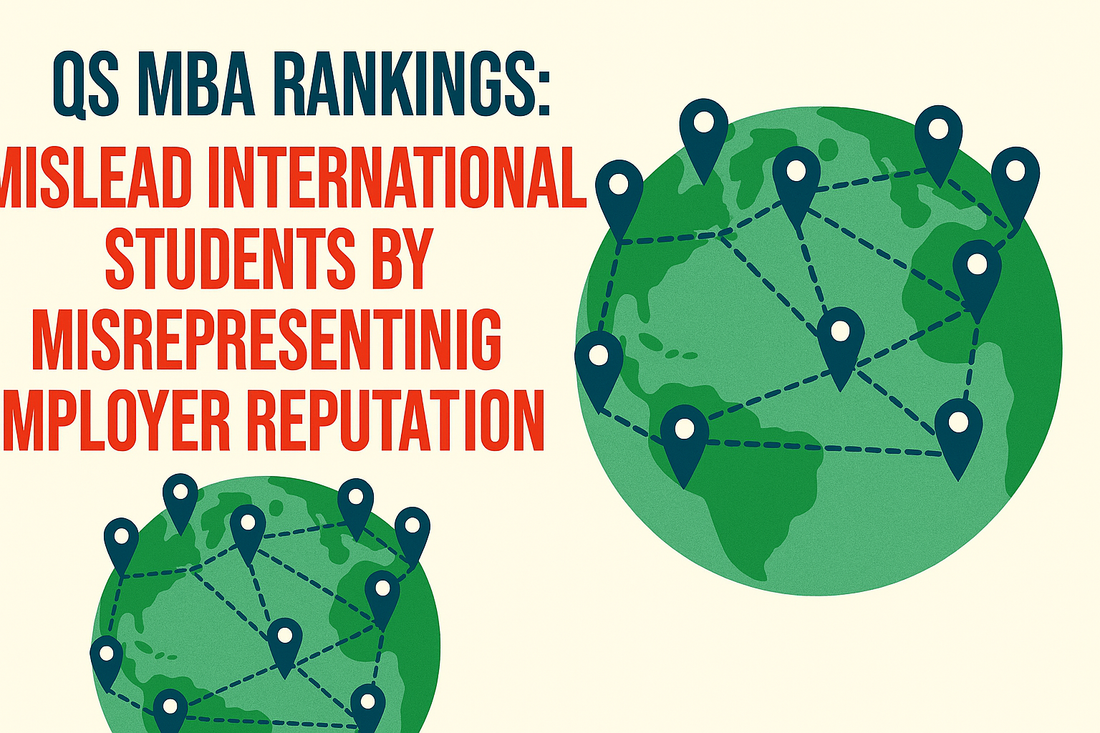
QS MBA Rankings Mislead International Students by Misrepresenting Employer Reputation
Share
The QS MBA and Business Masters rankings have long positioned themselves as a trusted compass for international students navigating the complex terrain of global business education. Yet beneath their glossy veneer lies a fundamental flaw: the employer reputation metric, a cornerstone of their methodology, fails to reflect the realities faced by international students seeking employment in foreign markets.
The Illusion of Global Employer Reputation
QS claims to measure employer reputation through surveys of global recruiters, assigning it a hefty weight: 35% for MBA rankings and 30% for Business Masters. However, this metric is deeply problematic when viewed through the lens of international students. These students often rely on QS rankings to make life-altering decisions, assuming that a high employer reputation score translates into better job prospects in their target countries. But QS does not disaggregate employer reputation by geography in a way that reflects local hiring ecosystems. A recruiter in São Paulo or Frankfurt may admire a US business school, but that admiration does little to help a graduate seeking work in Singapore or Dubai.
This disconnect amounts to a misrepresentation of value. International students are sold a promise of employability that may not materialise in their chosen markets. The rankings imply global portability of prestige, when in reality, employer reputation is highly localised and shaped by regional networks, immigration policies, and cultural familiarity.
Ignoring Sociopolitical Realities
QS rankings also fail to account for the shifting sociopolitical landscape that directly affects international student outcomes. From tightening visa regimes in the US and UK to rising protectionism and economic volatility, these factors profoundly influence job placement and post-study opportunities. Yet QS’s methodology remains static, blind to the lived experiences of students navigating these challenges.
Contrast this with the Financial Times (FT) MBA rankings, which in 2025 excluded all US business schools, a dramatic move that signals deeper concerns about transparency, relevance, and perhaps the declining global influence of American institutions. QS, meanwhile, continues to showcase US schools prominently, raising questions about whether their rankings reflect reality or serve institutional marketing agendas.
Rankings as Revenue Streams
QS is a for-profit entity, generating income through consultancy, advertising, and data services. Their rankings are not just informational—they are commercial products. Institutions pay for visibility, insights, and strategic advice to climb the QS ladder. The employer reputation metric, then, becomes not just a flawed indicator but a lever for monetisation. By extrapolating data from their rankings exercises, QS sells services back to the very schools it ranks, creating a feedback loop that prioritises institutional interests over student outcomes.
Who Are These Rankings Really For?
If QS rankings do not accurately reflect international employability, fail to account for sociopolitical disruptions, and serve as commercial tools for business schools, then what is their true purpose? For international students—who invest time, money, and trust—they offer a distorted map. For business schools, they offer branding, prestige, and strategic leverage.
So what is the need for such a rankings table to exist and be used by international students, if not for the self-serving interests of business schools?
Sources: QS Employer Reputation Indicator, QS Rankings Controversy and Profit Motives










